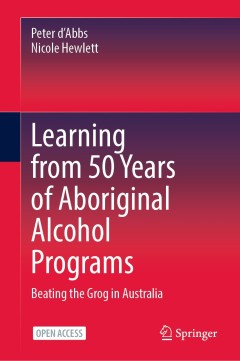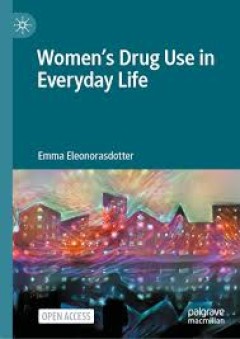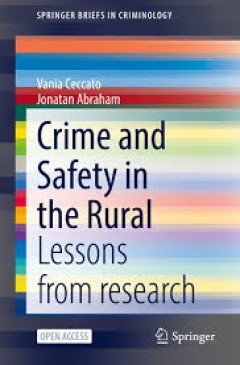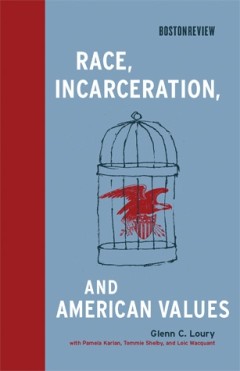Filter by

Everyday Crime, Criminal Justice and Gender in Early Modern Bologna
Female protagonists are commonly overlooked in the history of crime; especially in early modern Italy, where women’s scope of action is often portrayed as heavily restricted. This book redresses the notion of Italian women’s passivity, arguing that women’s crimes were far too common to be viewed as an anomaly. Based on over two thousand criminal complaints and investigation dossiers, Sann…
- Edition
- -
- ISBN/ISSN
- 978-90-04-44059-3
- Collation
- oer.unej.ac.id
- Series Title
- Crime and City in History, Volume: 5
- Call Number
- -

Forensic Genetics in the Governance of Crime
This open access book uses a critical sociological perspective to explore contemporary ways of reformulating the governance of crime through genetics. Through the lens of scientific knowledge and genetic technology, Machado and Granja offer a unique perspective on current trends in crime governance. They explore the place and role of genetics in criminal justice systems, and show how classical …
- Edition
- 1
- ISBN/ISSN
- 9789811524295
- Collation
- IX, 114 hlm; ill., lamp.,
- Series Title
- -
- Call Number
- -

Learning from 50 Years of Aboriginal Alcohol Programs
This open access book deals with community-based attempts on the part of Aboriginal communities and groups in Australia to address harms arising from alcohol misuse. Alcohol-related harms are viewed as both a product of colonisation and dispossession and a contributor to ongoing social, economic and health-related disadvantage, both in Australia and in other countries with colonised Indigenous …
- Edition
- 1
- ISBN/ISSN
- 978-981-99-0401-3
- Collation
- XXVI, 326
- Series Title
- -
- Call Number
- -

Women’s Drug Use in Everyday Life
This open access book explores the increasing role of psychoactive substances in contemporary everyday life, focussing on women's use. Drawing on an ethnographic study in Sweden, it uses cultural studies and queer phenomenology to analyse the women’s narratives of drug use relating to themes that encompass social, legal, cultural, embodied and gendered perspectives on drugs in the contemporar…
- Edition
- -
- ISBN/ISSN
- 978-3-031-46057-9
- Collation
- XIII, 352
- Series Title
- -
- Call Number
- -

Crime and Safety in the Rural : Lessons from research
Criminology has until recently neglected the nature and levels of crime outside the urban realm. This is not a surprise as crime tends to concentrate in urban areas and the police directs resources where the problems are. Yet, there are many reasons why scholars, decision-makers and society as a whole should care about crime and safety in rural areas. This book highlights 20 reasons why crime a…
- Edition
- -
- ISBN/ISSN
- 978-3-030-98290-4
- Collation
- XIX, 123
- Series Title
- SpringerBriefs in Criminology (BRIEFSCRIMINOL)
- Call Number
- -

Do Exclusionary Rules Ensure a Fair Trial? : A Comparative Perspective on Ev…
This open access publication discusses exclusionary rules in different criminal justice systems. It is based on the findings of a research project in comparative law with a focus on the question of whether or not a fair trial can be secured through evidence exclusion. Part I explains the legal framework in which exclusionary rules function in six legal systems: Germany, Switzerland, People’s …
- Edition
- -
- ISBN/ISSN
- 978-3-030-12520-2
- Collation
- XV, 380
- Series Title
- Ius Gentium: Comparative Perspectives on Law and Justice (IUSGENT, volume 74)
- Call Number
- 320 DOE

Vergleichsweise menschlich?
Ambulante Sanktionen gelten oftmals als menschliche Alternative zur Freiheitsentziehung. Der eigene Eingriffscharakter, die Perspektive der Betroffenen und die Erweiterung des Netzes sozialer Kontrolle werden übersehen. Die Übertragung von Sanktionspraktiken zwischen Rechtskulturen erfordert menschenrechtliche Minimalstandards. Zudem fehlen Kontrollgruppen-Studien und insbesondere ein Verglei…
- Edition
- 1
- ISBN/ISSN
- 978-3-658-08965-8
- Collation
- -
- Series Title
- Schriftenreihe des Strafvollzugsarchivs
- Call Number
- XV, 144

Crime and Safety in the Rural
Criminology has until recently neglected the nature and levels of crime outside the urban realm. This is not a surprise as crime tends to concentrate in urban areas and the police directs resources where the problems are. Yet, there are many reasons why scholars, decision-makers and society as a whole should care about crime and safety in rural areas. This book highlights 20 reasons why crime a…
- Edition
- 1
- ISBN/ISSN
- 978-3-030-98290-4
- Collation
- -
- Series Title
- SpringerBriefs in Criminology
- Call Number
- XIX, 123

The politics of crime, punishment and justice: exploring the lived reality an…
- Edition
- -
- ISBN/ISSN
- 9781003328339
- Collation
- -
- Series Title
- -
- Call Number
- -
- Edition
- -
- ISBN/ISSN
- 9781003328339
- Collation
- -
- Series Title
- -
- Call Number
- -

Race, Incarceration, and American Values
"Based on the 2007 Tanner lectures on human values at Stanford."Why stigmatizing and confining a large segment of our population should be unacceptable to all Americans.The United States, home to five percent of the world's population, now houses twenty-five percent of the world's prison inmates. Our incarceration rate--at 714 per 100,000 residents and rising--is almost forty percent greater th…
- Edition
- -
- ISBN/ISSN
- 9780262278577
- Collation
- 1 online resource (86 pages).
- Series Title
- -
- Call Number
- -
 Computer Science, Information & General Works
Computer Science, Information & General Works  Philosophy & Psychology
Philosophy & Psychology  Religion
Religion  Social Sciences
Social Sciences  Language
Language  Pure Science
Pure Science  Applied Sciences
Applied Sciences  Art & Recreation
Art & Recreation  Literature
Literature  History & Geography
History & Geography